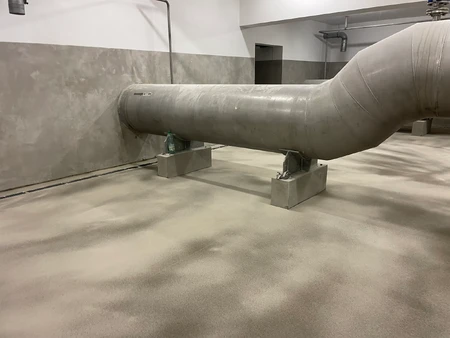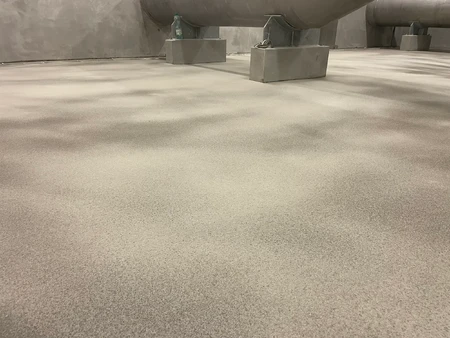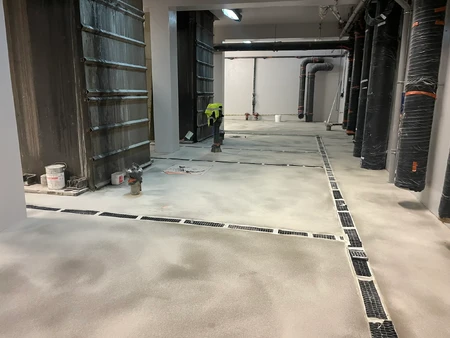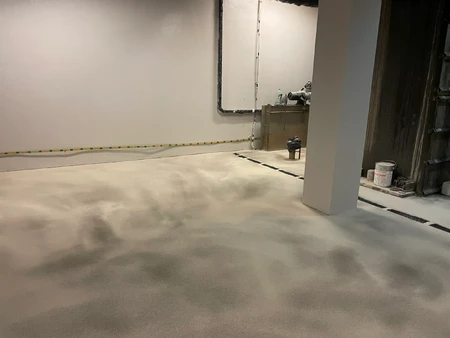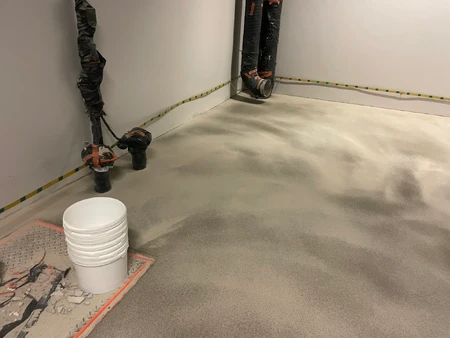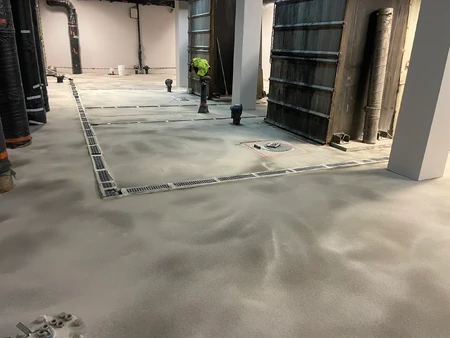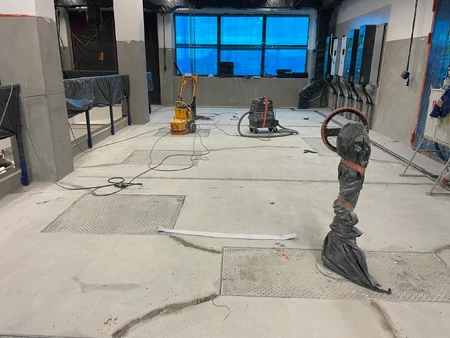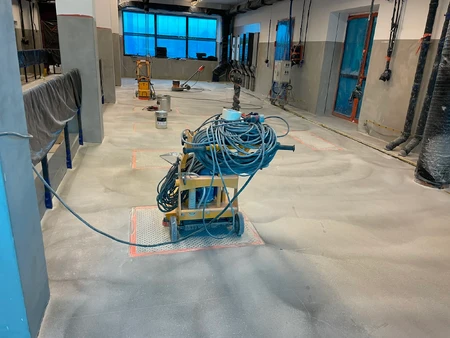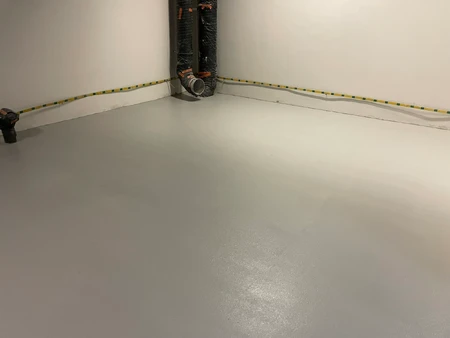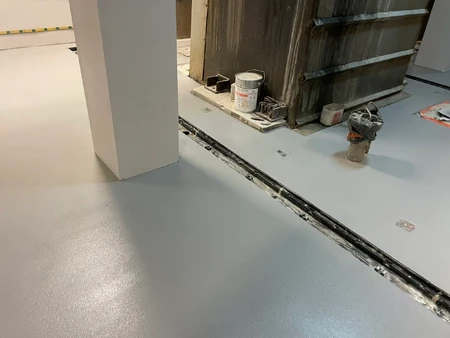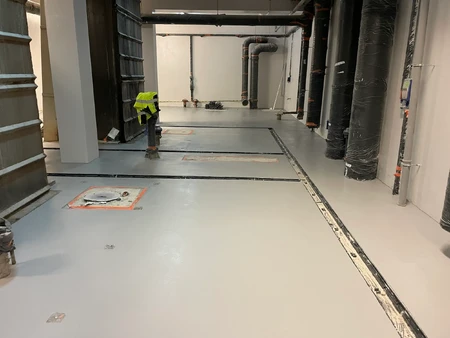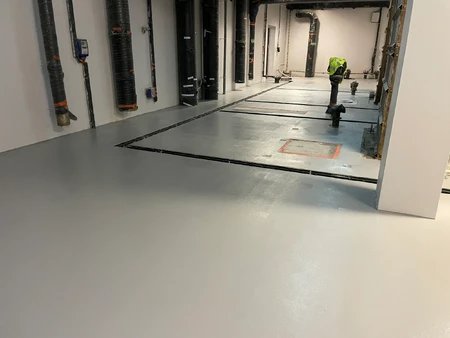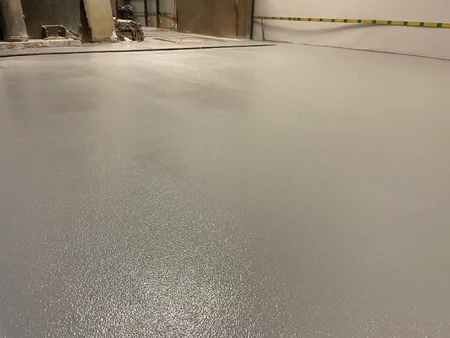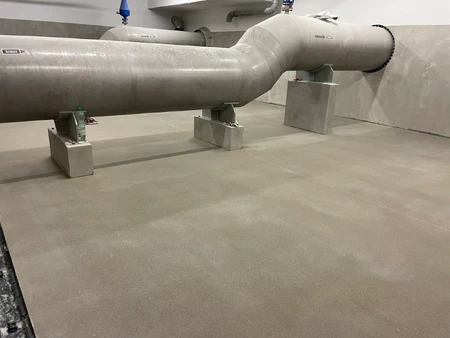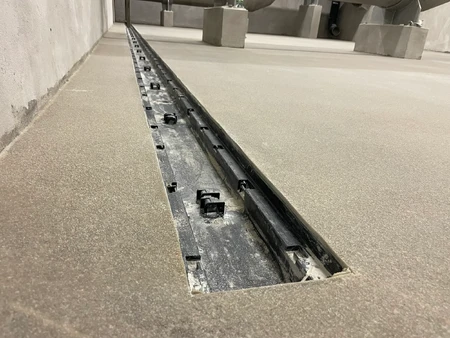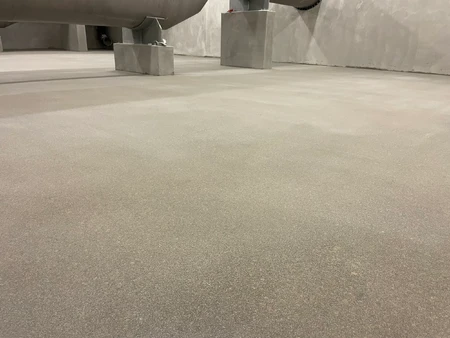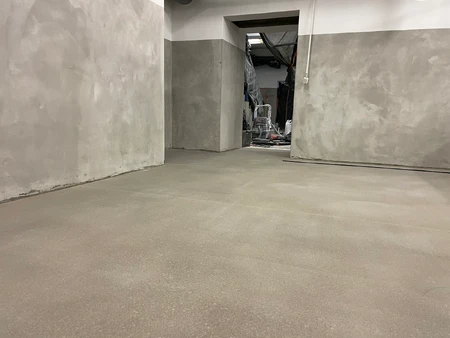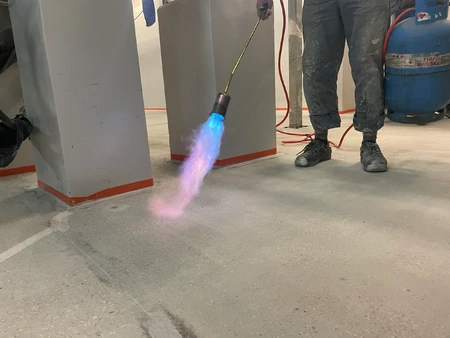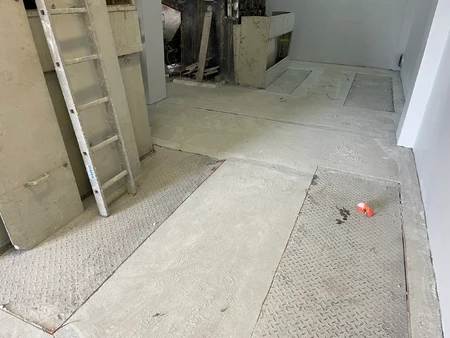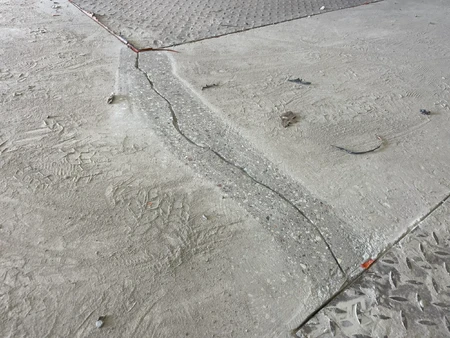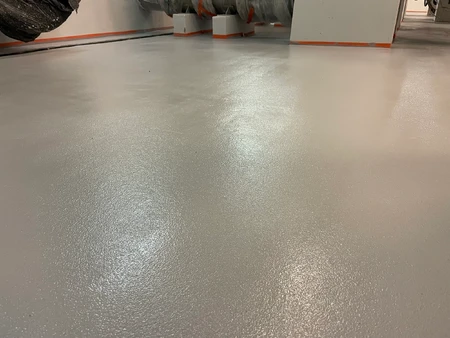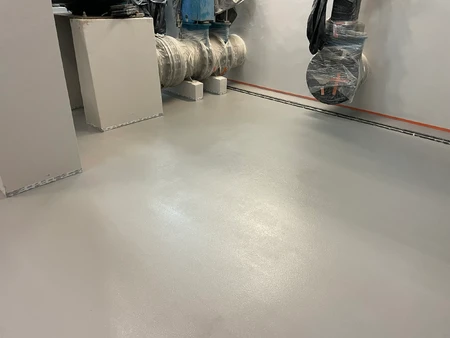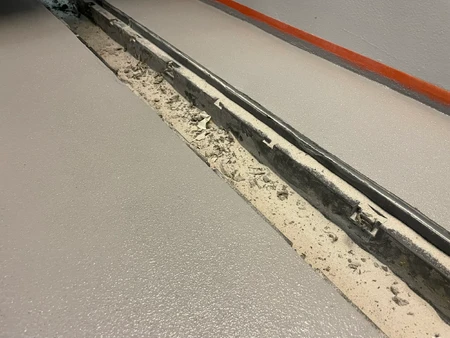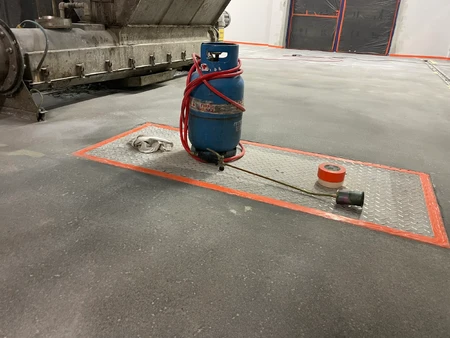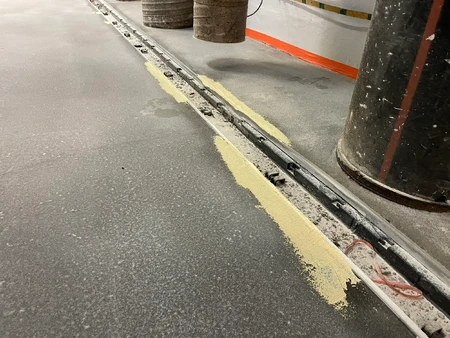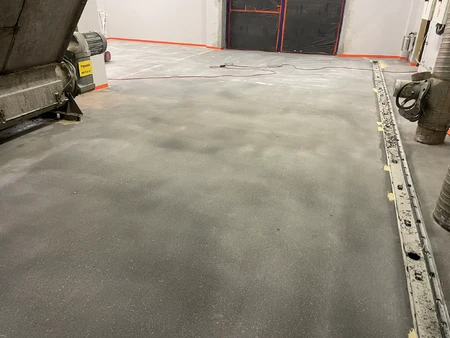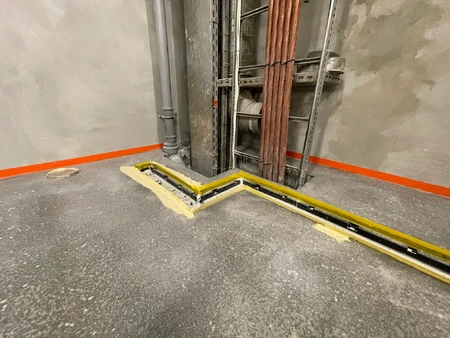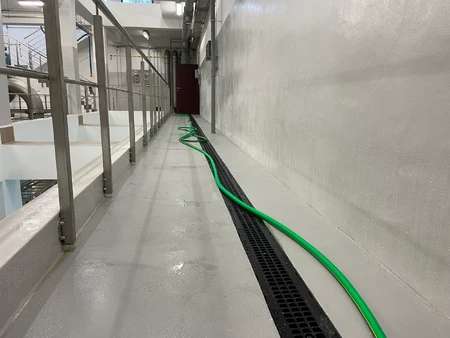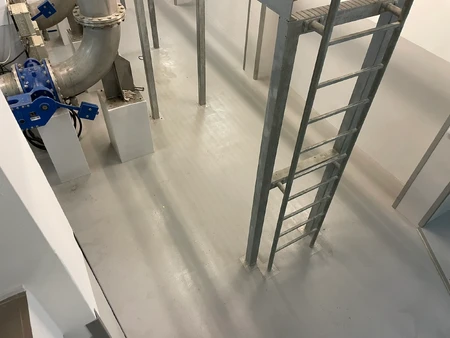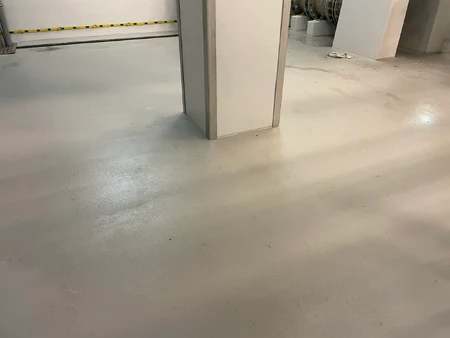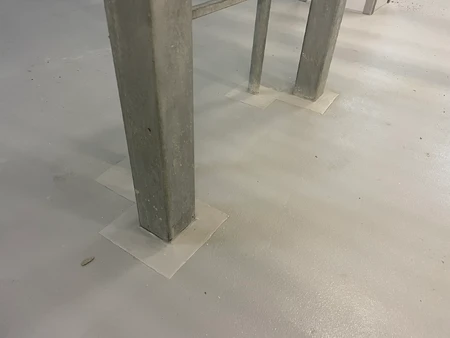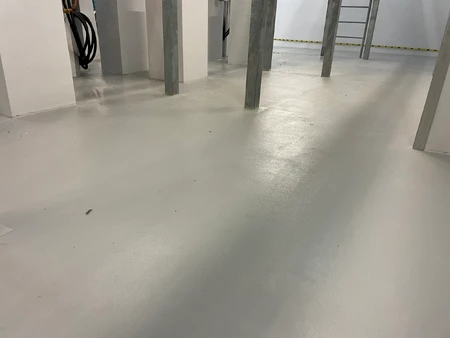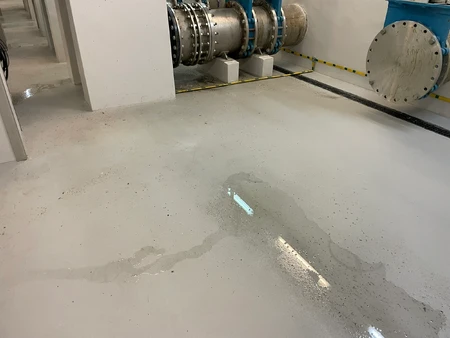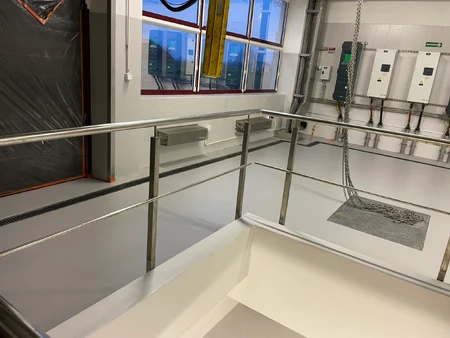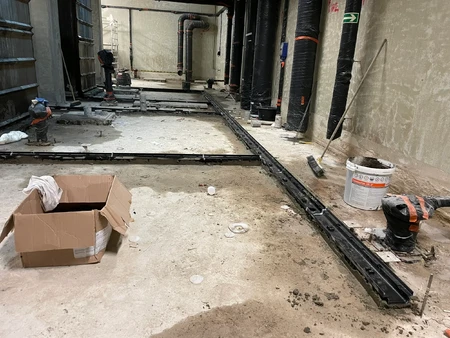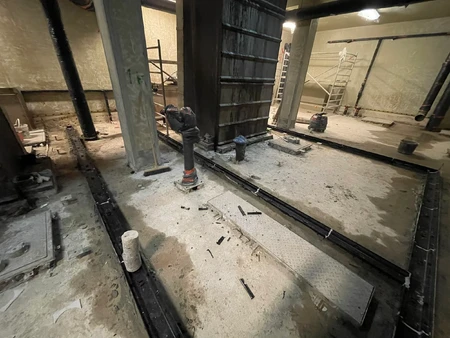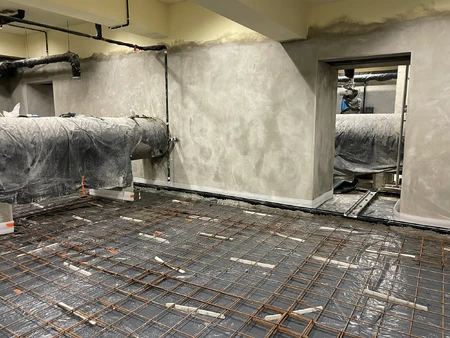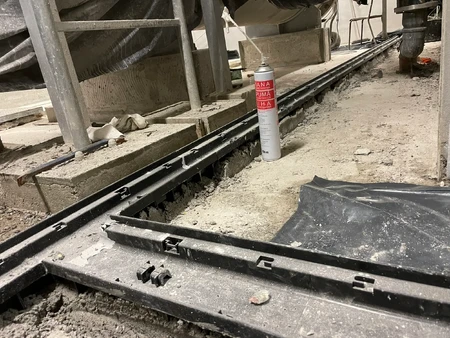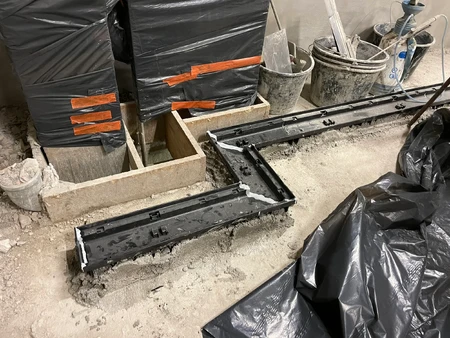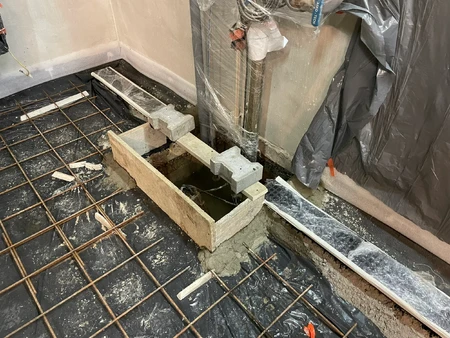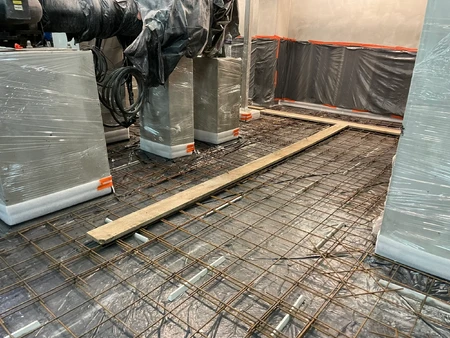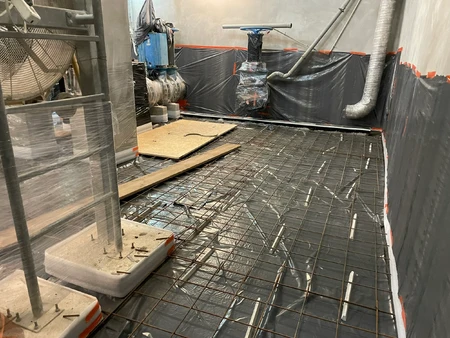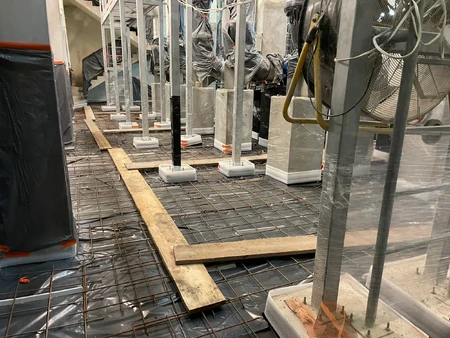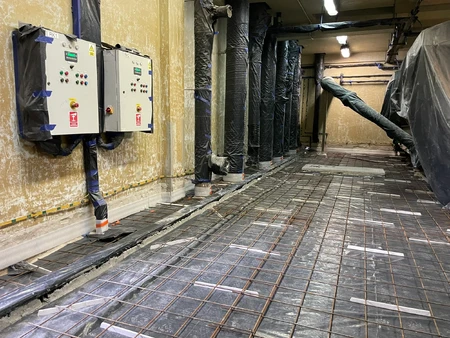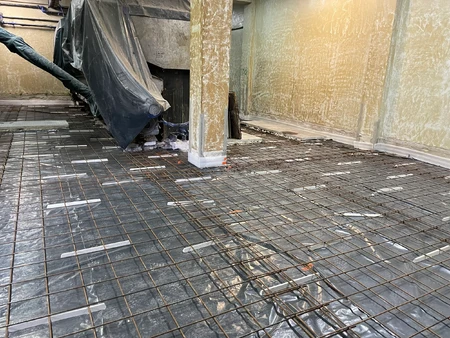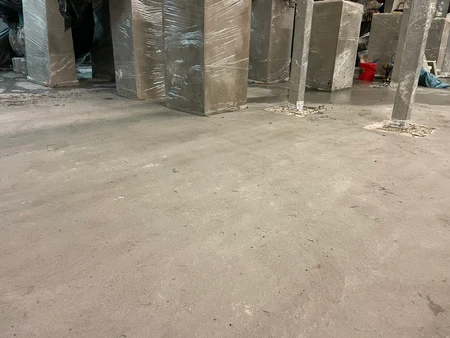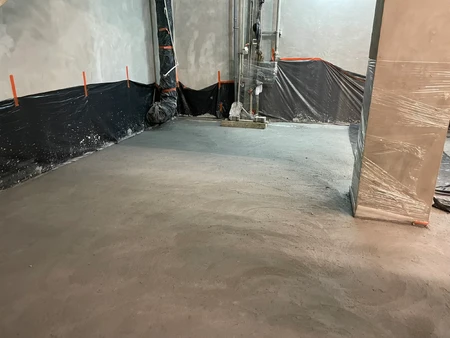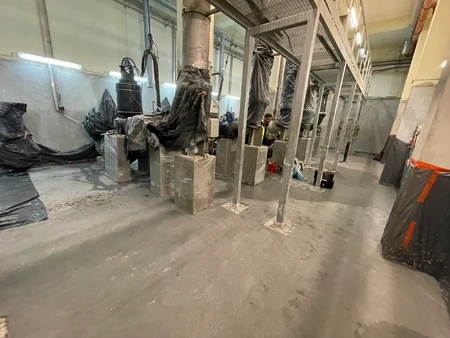What we did on this construction:
- installation of linear drainage;
- laying the reinforcement mesh;
- production of industrial concrete floor for further production of resin floors.
Industrial concrete floor in a damp room. What are the conditions for implementation? What to pay attention to?
Working with concrete in a damp room can be a challenge, but it is possible. Here are a few points you should pay attention to:
Substrate preparation: high quality industrial flooring or resin flooring requires a solidly prepared substrate. This may require removing the current floor, leveling the surface, and providing adequate drainage. In particular, in a humid room, the substrate must be completely dry before starting work, which may require the use of specialized dehumidification equipment.
Insulation: in a humid room, it is extremely important to provide adequate waterproofing under the concrete slab to prevent moisture from penetrating the concrete floor.
Materials: when choosing concrete, it is worth considering the use of special admixtures that improve moisture resistance and prevent the formation of cracks.
Ventilation: in a humid room, it is good to provide adequate ventilation to speed up the drying of concrete and minimize the risk of mold and fungus.
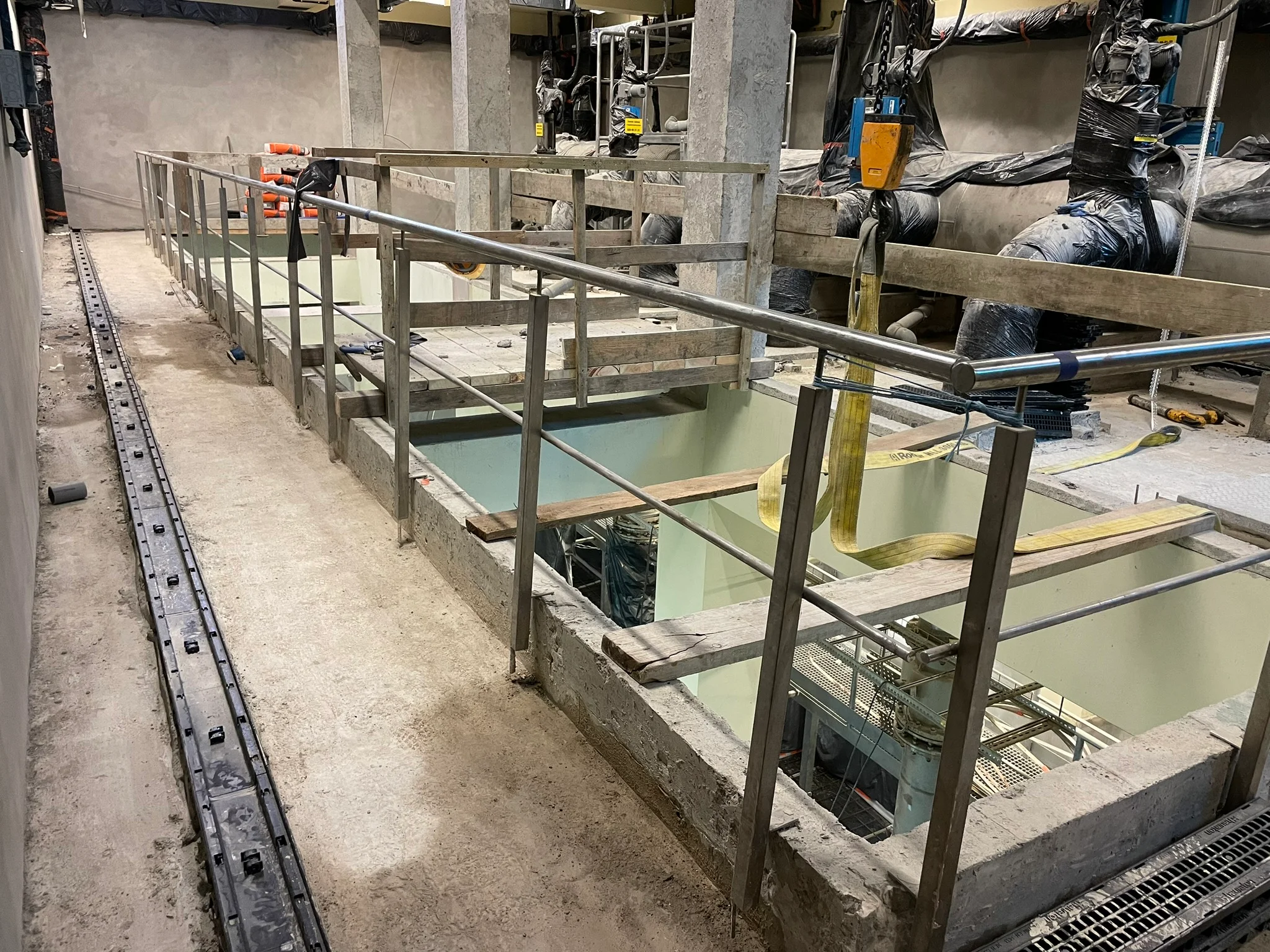
Maintenance: after completion of the work, it is necessary to properly maintain the concrete or resin floor, including regular cleaning and removal of any standing water, to prevent excessive moisture development and related problems such as cracking or swelling.
Remember that concrete is a porous material that can absorb moisture and thus trigger degradation processes. That is why it is so important to apply the correct techniques for the manufacture and maintenance of industrial flooring.
Additional waterproofing industrial concrete floor can provide additional protection against moisture and water. Here are some basic steps:
Substrate preparation: as with laying a resin floor, the first step is to properly prepare the substrate. It must be clean, dry and even.
Choosing the right product: there are many products designed for waterproofing concrete. You can choose from many available on the market.
Waterproofing membranes: these are products that are applied to the concrete floor and form a waterproof barrier. They are available in a variety of formats, including as liquids that can be applied with a roller or brush, as well as in the form of sheets or mats that are glued to the floor.
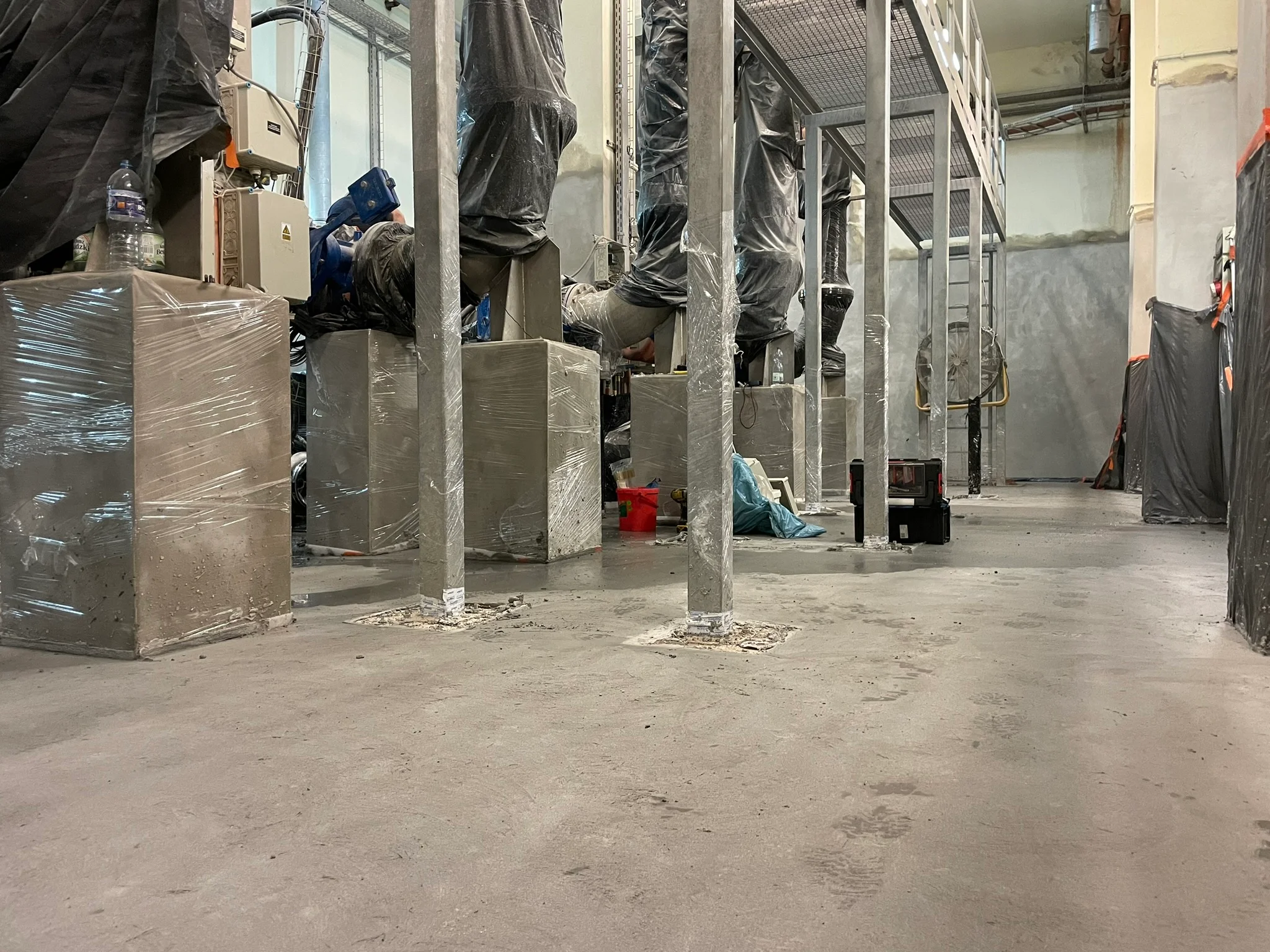
Waterproofing paints and coatings: they are applied to the surface of industrial flooring using a roller or brush. Depending on the product chosen, one or more layers may be required for maximum protection.
Concrete sealants: these are products that penetrate the concrete surface and Harden to form a waterproof barrier. They can be especially effective for concrete floors that are exposed to high humidity.
Application of waterproofing material: regardless of the product chosen, it is important to follow the manufacturer's instructions carefully. This will help to ensure maximum efficiency and durability of waterproofing.
Maintenance: after the waterproofing has been applied, it is important to regularly check the condition of the concrete floor and keep it in good condition to ensure long-term protection.
Remember that improperly made waterproofing can lead to the formation of moisture and other problems. Therefore, it is important that all the work is done by an experienced professional.
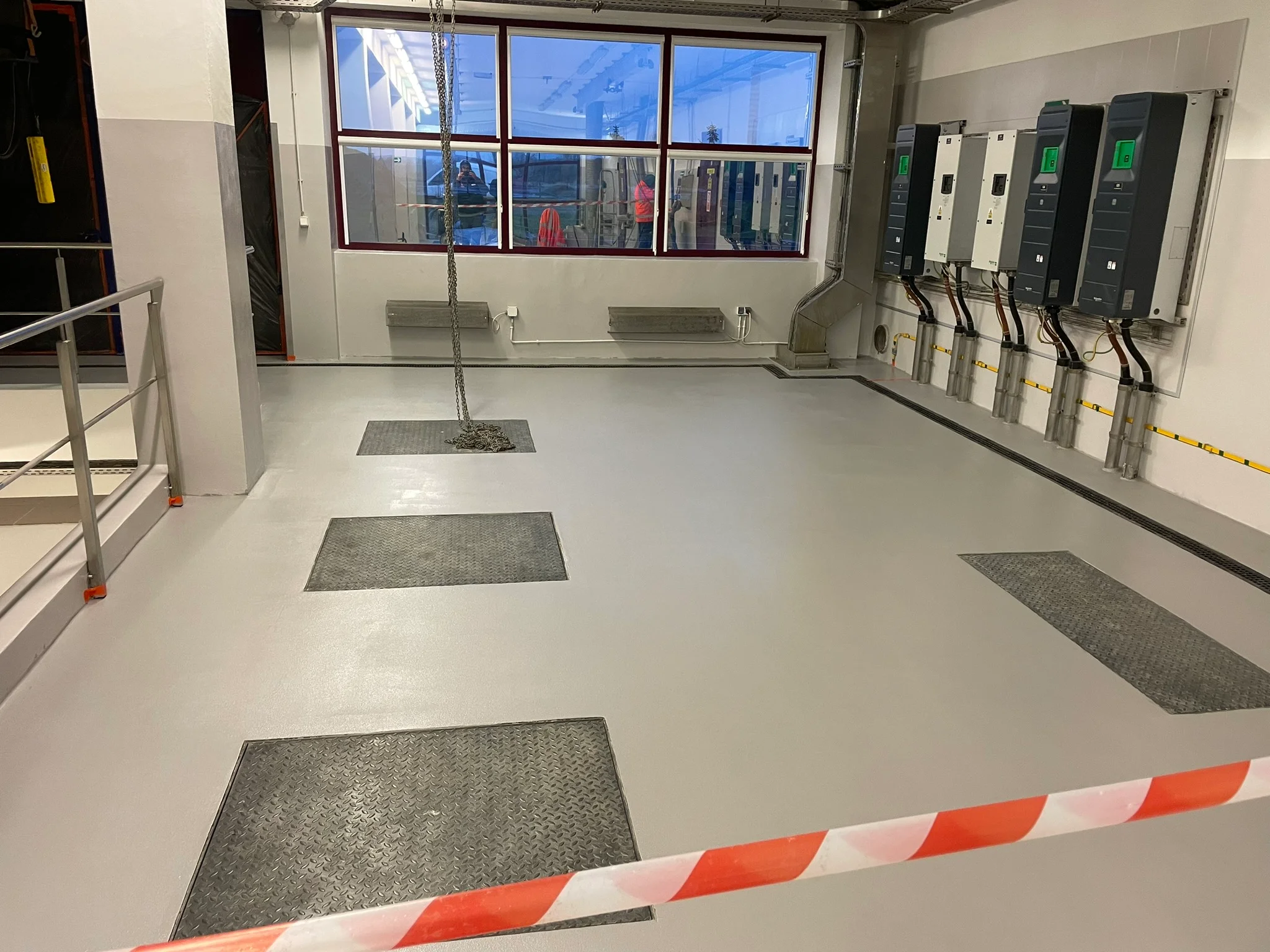
Results of work:
- installation of linear drainage - 170 lin.m;
- laying the reinforcement mesh - 900 m2;
- production of industrial concrete floor for further production of resin floors - 900 m2.


